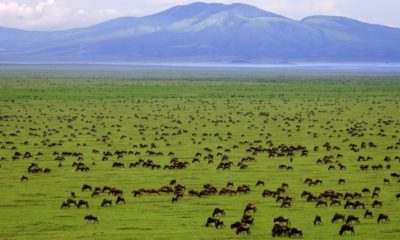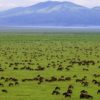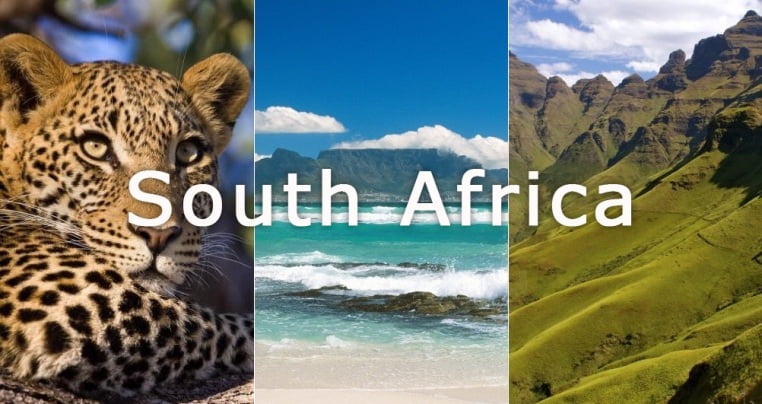Africa
Backpacking Kenya Need To Know
Basics
Languages:
Capital:
Currency:
| Dial Code:
International Access Code:
Emergency Services Number:
Time Difference:
|
Recommended For Further Information On Kenya
Lonely Planet East Africa
The below is a very basic guide. If you are heading to Kenya I highly recommend picking up a copy of Lonely Planet’s; East Africa. It provides the most relevant, up-to-date advice on what to see and what to skip. It also includes coverage of Uganda, Tanzania, Rwanda, Burundi, the Democratic Republic of the Congo, and the Zanzibar Archipelago…

Entry
Most visitors need a visa to enter Kenya. You can get a visa from a Kenyan High Commission or Embassy, or at the airport on arrival. For visas on arrival, payment is in cash either US$50, €40 or £30.
Your passport should be valid for a minimum period of 6 months from the date of entry into Kenya. Make sure you have two blank pages in your passport on arrival.
Yellow fever vaccination is required for travellers arriving from countries with risk of yellow fever transmission.
For official information visit your home government travel bureau.
Getting Around
More detail is to come in this section, but you can read about general advice regarding Getting Around When You Get There
Accommodation
Kenya doesn’t have a tourism sector aimed specifically at backpackers, so you may struggle to find hostels. However hotels and guesthouses are relatively cheap, but vary in quality. Only stay in tourist camps with good perimeter security.
Read more about Accommodation When You Get There
Food And Health
Food hygiene and safety is not great, don’t eat food prepared by unlicensed vendors. Use your instincts; if the place looks dirty, don’t eat there; if your food isn’t piping hot, don’t eat it.
Water is not safe to drink, so stick to bottled or boil and avoid ice in drinks.
Make sure you have adequate travel health insurance and accessible funds to cover the cost of any medical treatment abroad and repatriation.
Cholera, malaria and dengue fever occur in Kenya. Always contact your GP around 8 weeks before your trip to check whether you need any vaccinations or other preventive measures. Visit here for Recommended Vaccinations and read here for more about Travelling Health In General
Weather & Time To Go
Kenya is hot and humid along the coast, temperate inland, and hot and dry in the north. The hottest period is from February to March and the coldest from July to August. There are rainy seasons from April to June and from October to December in tropical parts.
Communications
Internet is generally slow, but accessible in most towns, hotels and lodges. International calling cards are cheaply available in large towns.
Dangers And Considerations
Travel is usually advised against to areas within 60km of the Kenya-Somali border, the Garissa District, the Mombasa coast, and the Eastleigh area of Nairobi.
There is a high threat from terrorism, including kidnapping. The main threat comes from extremists linked to Al Shabaab, a militant group that has carried out attacks in Kenya.
Foreigners are not generally targeted, but mugging, kidnapping, and armed robbery occur regularly, particularly in Nairobi, Mombasa and other large cities.
Bag snatching and passport theft are common in transport hubs like bus stations, railway stations and airports. Be particularly vigilant in these areas.
Most visits to game reserves and other tourist areas are trouble-free. If you visit reserves, use reputable tour operators and arrive at your destination in daylight hours. Don’t buy safari tours from touts.
Drink and food spiking is common – buy your own drinks and keep them within sight at all times. Don’t accept food from strangers.
The use of illegal Class A drugs in Kenya carries heavy fines and jail sentences. The penalty for possession is 10 years in prison.
Homosexual activity is illegal. Public displays of homosexuality like holding hands or kissing in public places could lead to arrest and imprisonment.
There are risks associated with viewing wildlife, particularly on foot or at close range. Bathing in rivers and lakes is forbidden in National Parks and is best avoided elsewhere due to the dangers from both wildlife and water-borne disease.
It is illegal to destroy Kenyan currency.
Dangers constantly change. Always check with your foreign office (British Foreign Office webpage) or travel advice bureau for the latest information regarding your destinations safety.
Read more about Safety And Security here
Respecting Culture
The coastal areas are predominantly Muslim. Respect local traditions, customs, laws and religions at all times and be aware of your actions to ensure that they do not offend other cultures or religious beliefs.







